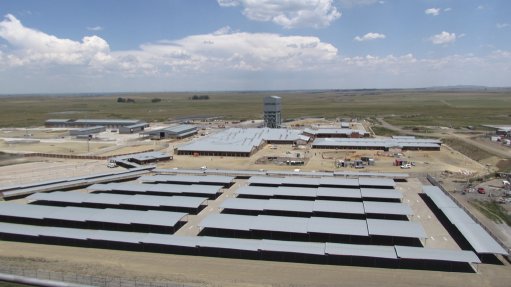
PRIVATE VS GOVERNMENT FUNDING A large part of South Africa’s development is based on private entrepreneurial input
South Africa has the potential to become a global centre of excellence for consulting engineering services, according to Hatch Africa, Europe and Middle East region MD Dr Pierre Olivier.
“In South Africa, we have the benefit of a highly competitive workforce that can compete with the best in the world. “However, as a country, we have not exploited our offering as a centre of excellence for value-added engineering services,” Olivier argues. He points out that India, for example, has made great strides in becoming a global service centre.
“Hatch has successfully added value by responding to our global clients’ challenges from our offices in South Africa. We shift work here to make it more valuable and, as a country, we should be doing more of that. This approach has become a real competitive advantage in our industry. Doing this allows emerging and established local players to add value in a space where they couldn’t compete before because of cost.”
Such flexibility is also critical to continue to generate opportunities in the local industry, he says. Commenting on the dearth of projects and perceived current oversupply of engineering graduates, Olivier highlights: “Focusing on technical skills will enable our country to grow and compete in the global market. Certainly, people with good skills always land on their feet and find something to do.”
He points out: “We have seen an erosion in workload, but have also seen a heightened focus on value and hope to see more of this in the long term. At the same time, we are still seeing good opportunities. “If you can’t grow it, you have to mine it. And if you grow it, you also have to deploy commodities from mining.
“We are noticing a trend, more so than in the past, that entrepreneurship and private-equity funding is driving development on the African continent. Corridors for the movement of goods and people still provide numerous growth opportunities,” Olivier says.
Hatch has a well-established African footprint, and is currently active in the Democratic Republic of Congo (DRC), Botswana, Mauritania, Ethiopia and Zimbabwe, among others. “We have been working in Africa for 30 years. We have always had a strategy of following our clients in pursuit of big and challenging opportunities.”
The current global economic slowdown has meant that Hatch has had to respond to its clients’ business environment. We needed to do something. If you do not change and it is just business as usual, then you cannot expect continued growth,” Olivier explains.
“We have a simple strategy; expand our service offering to existing clients and take what we do well to new clients and markets. We have grown our service offering in response to the new environment and our clients’ changing needs. For example, we have the skills to optimise their operational performance and improve their maintenance processes, which are all focused on getting more out of their existing facilities.”
Another focus is extending Hatch’s expertise into new business areas. “This means we take what we know well and what we can do very effectively, and offer it to clients in new spaces. New clients can either be in our backyard or adjacent, or it can be a new client in a new region, country or area of jurisdiction.”
Olivier explains that Hatch’s service offering focuses on three main areas. “We help with capital deployment that includes engineering, procurement and construction management; ensuring projects are delivered on time and within budget. “This includes the full range of services from finding the right business case [including financing options], viability assessment, getting the right permitting in place, building it safely and ensuring optimal, sustainable performance.
“The second main offering is consulting and advising on best practice, while the third offering focuses on operational improvement. Do you have the right maintenance schedules? Are you getting the maximum out of your equipment? Is everything running at nameplate capacity? Are you getting the maximum throughput? Are you at your expected cost levels?”
Olivier highlights that Hatch has a particularly strong integrated team that can look at all of these myriad aspects for its clients. Hatch’s three main business sectors are metals and mining, infrastructure and energy.